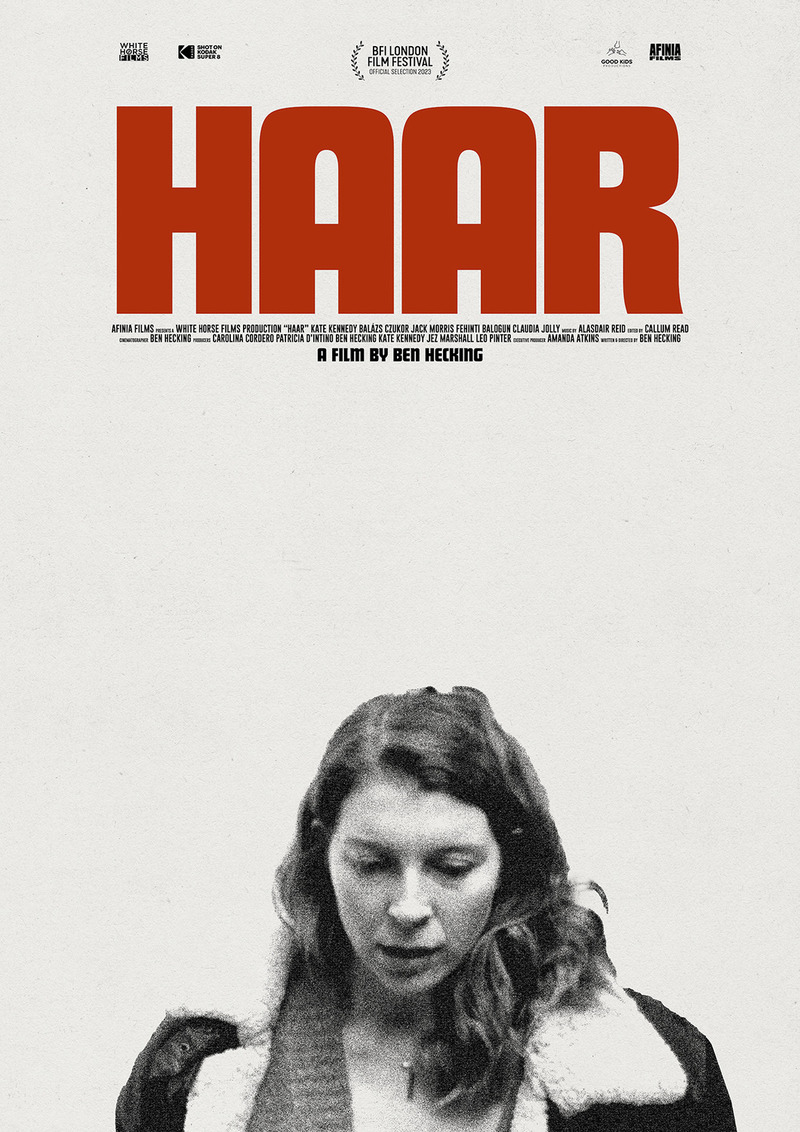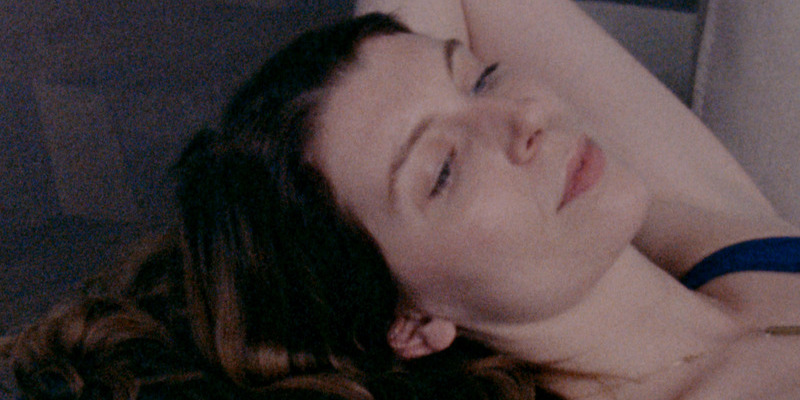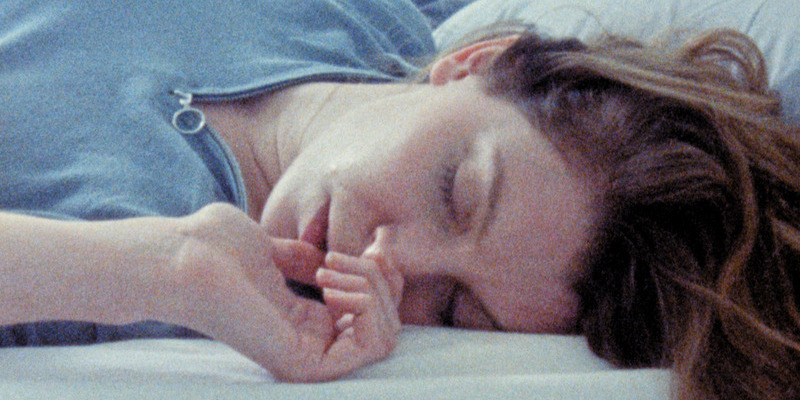
A TV show production manager contends with personal and professional
issues over the course of a day.
Review by
Eric Hillis
Directed by: Ben Hecking
Starring: Kate Kennedy, Balázs Czukor, Fehiniti Balogun, Jack Morris, Claudia Jolly, Will Brown,
Grace Chilton, Deborah Findlay

Before the advent of camcorders and smartphones, consumers wishing to
preserve moving picture memories had to rely on the Super 8 format. The
grainy texture of the 8mm format has come to symobolise memory and
nostalgia, and when it's deployed by filmmakers it's usually to evoke
both sensations, the classic example perhaps being the credits sequence
for The Wonder Years.
Writer/director/cinematographer Ben Hecking's second feature
Haar is a rare movie shot completely on Super 8 stock.
Where the format is usually purposely made to look amateurish, the
striking compositions of Haar remind you that when
utilised by professionals this cheapest of film formats has a quality
lacking in digital.

Though set in the present day, Haar has a nostalgic feel
exacerbated by its use of Super 8. Hecking leaves in flares and
scratches, and even a stray hair in the gate at one point, which gives
it the immediacy of the professional but rushed productions of 1970s and
'80s British TV. The title refers to a designation for a type of mist
that comes in from the sea, and the film equates a fractured memory with
a fog, where some images are clearer than others, and sometimes our eyes
and minds can betray us.
Over the course of a day, Jef (Kate Kennedy) is forced to
confront both her future and her past as she's hit with two bombshells.
Jef is a production manager for a TV show being shot in Budapest, and
with the show having just wrapped, she has a few last minute errands to
run before leaving the city. While contending with her professional
duties, Jef discovers she's pregnant, likely the result of a fling with
the show's leading man, Bill (Jack Morris). A phone call from her
mother brings the bad news of her father's passing following three
successive heart attacks.

Jef is statuesque, Amazonian even, but as they say, the bigger they
are, the harder they fall. She tries to keep it together as she gets on
with her job, but her rigid frame can't disguise the emotions she's
suppressing. On a video call with Bill she conceals the news of her
pregnancy, instead indulging in a mutual masturbation session. She tells
people she wasn't close to her father (who named her Jef because he
wanted a boy), but the doubt on her face tells us she might have been
closer than she thought. Despite her mental state, Jef attends a party,
where a past lover (Fehiniti Balogun) gets some things off his
chest about how her self-absorption makes those around her feel
belittled.
Watching this well-maintained, professional woman slowly mentally
unravel over the course of 80 minutes is like watching a tranquilised
giraffe collapse in slow-motion. In her first leading feature role,
Kennedy is a captivating presence. With her easy-going front and
attractive looks, we can see why Jef is accustomed to being in control
of other people, but also how her aloofness might lead to others being
trampled in her over-bearing presence. We see an early example of this
in how Jef charms a woman who complains that her production left damage
at the location she allowed be filmed, the final look on the woman's
face that of someone trying to figure out if they've just had their
pocket picked.

Like many who exude an air of confidence, Jef is a mess internally. In
a striking piece of acting we watch as Jef takes a rare breather to sit
on a park bench and eat a sandwich. Hecking holds his camera on
Kennedy's face as it betrays a myriad of thoughts and emotions as though
Jef is trying to compartmentalise her troubles in the manner she might
deal with various work issues. Though we only hear her voice,
Deborah Findlay is subtly affecting as Jef's distraught mother,
and her interactions with her distant daughter are almost word for word
those I had with my own mother when she broke the news of my father's
passing in similar circumstances.
Haar is a tender tale of a tough woman. With its
protagonist traversing a scenic European city, it has the feel of
Linklater's Before Sunrise, but instead of asking the audience if two protagonists might fall in
love, it proffers the question of whether one woman might learn to love
herself. In Kennedy's Jef we're reminded that self-absorption is often a
close cousin of self-doubt.


